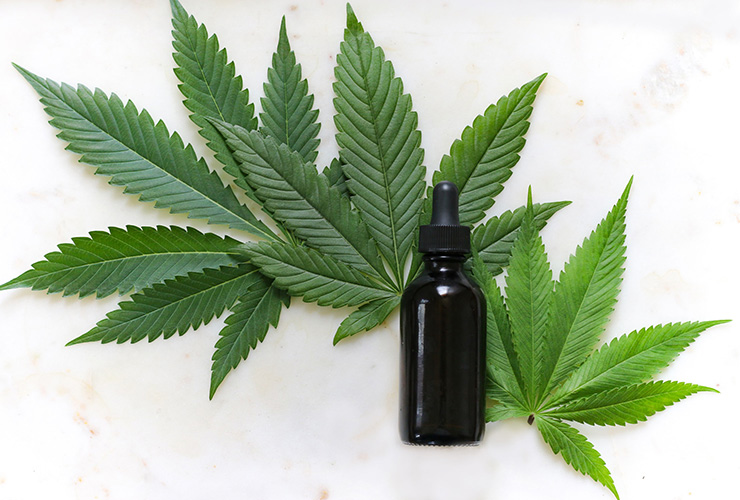
With the growing incidences of mood disorders, CBD oil may be a safe alternative to conventional medications for treating depression and anxiety
—
According to the National Institutes of Health’s 2005 National Comorbidity Survey-Replication study, approximately 9.5% of American adults aged 18 or older suffer from some sort of mood disorder. These mood disorders include major depressive disorder, dysthymic disorder, and bipolar disorder. Dysthymic disorder is a constant state of mild depression. According to the World Health Organization, major depressive disorder is the leading cause of disability among adults aged 15 to 44.
Selective serotonin reuptake inhibitors (SSRIs) are the most commonly prescribed kinds of antidepressants used for mood disorder treatment. Used alone or with psychotherapy, these medications allow many of people suffering from mood disorders to return to healthy, productive lives, although side effects can be significant.
Is there a better way?
How CBD Oil Can Treat Depression
All humans have an endocannabinoid system in their bodies. The endocannabinoid system is closely linked with the brain. This system helps to regulate mental health, immune health, and other biological processes.
When most people think of using cannabis as a treatment, they may think about the most known compound in marijuana, tetrahydrocannabinol or THC. It’s the chemical known for the euphoria associated with feeling ‘high’.
While THC can be beneficial in alleviating some symptoms of mood disorders, it is the cannabidiol or CBD compound that is the real star for fighting anxiety and depression.
People who experience anxiety or paranoia associated with THC may benefit from CBD oil treatment as CBD is non-psychoactive.
CBD Oil and Anxiety
Anxiety is one of the most common emotional disorders. According to the World Health Organization, there are nearly 264 million people who are suffering from anxiety worldwide. Anxiety can come in many shapes and forms, including social anxiety, panic disorder, and post-traumatic stress disorder (PTSD).
A paper published in 2010 in the Journal of Psychopharmacology suggests that in both human and animal models, CBD can serve as a viable treatment for anxiety. Another study, done in 2011 and published in Neuropsychopharmacology revealed that CBD can help treat social anxiety, one of the most common forms of anxiety. Another case report that was published by the Permanente Journal in 2016 revealed that CBD might be an effective treatment for post-traumatic stress disorder and the anxiety and insomnia that is commonly associated with PTSD.
What About Mood Swings?
Most of the time, ‘mood swings’, or the noticeable changes in mood from a feeling of wellbeing to feelings of anger, irritability, or sadness are a part of life that we manage well. However, in some people, mood swings can be debilitating.
The current medical theory believes that mood swings are due to imbalances in our limbic system (our more primitive emotional processing center).
The limbic system works with the endocannabinoid system. CBD can play a part in regulating the limbic system, which in turn, helps to regulate emotions as well as mood fluctuations.
Is CBD Addictive? Can it be Abused?
The short answer is no. However, to correctly address the issue, we must address the two sources of CBD: marijuana and hemp. The CBD that is derived from hemp plants has little to no THC. However, the marijuana plant may contain higher amounts of THC, depending upon strain, unless it has been processed. With chronic and long-term use, people who use THC can develop certain withdrawal symptoms. These symptoms include anxiety, agitation, poor mood, and sleep disturbances. More research is needed to see if this happens with pure CBD.
How Can CBD Be Ingested?
CBD comes in a wide variety of forms. CBD oil can be used as a sublingual treatment by placing a few drops under the tongue. Consuming CBD oil via vape pens is another method of usage. CBD treatments can also take the form of gummy candies as well as be integrated into beverages. It can also be taken in the form of capsules. There is also the option of using CBD-dominate dry flower in a portable vaporizer.
What are the Side Effects of CBD?
While using CBD for anxiety, depression, or other mood disorders provides a safe, natural treatment, that doesn’t mean that there are no side effects. Some of these side effects can be unpleasant. They include dry mouth, changes in appetite, low blood pressure, dizziness, changes in mood, nausea, and vomiting. That said, CBD is generally well tolerated by most people and the side effects are manageable. Experiencing side effects can be an indication that you need to lower the dose.
The Takeaway
Whether you suffer from depression or anxiety, CBD oil can provide safe and effective treatment for mood conditions. CBD oil, particularly that derived from hemp, has none of the impairment that can come with THC.
For many people, CBD oil taken as a supplement can help to regulate their mood and balance the endocannabinoid system, which is essential for emotional wellbeing. However, always talk to your doctor before taking any supplements, including CBD. They can advise you on dosage protocols.
[Disclaimer:Health-based content published by Best Self Media is not intended to be interpreted as medical advice, nor to replace the recommendations or counsel of a medical professional. Rather it is our intent to present valuable perspectives from the experiences or research of our contributors.]
You may also enjoy reading From Medication to Meditation: A Journey From Depression to Peace by Laura Bishop